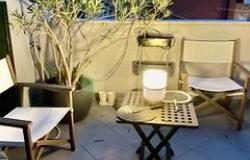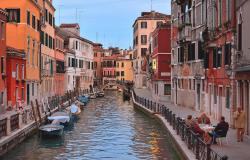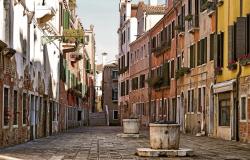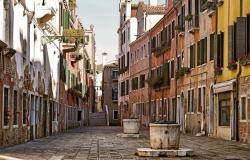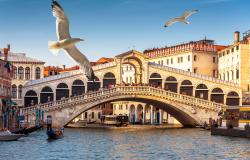 The Alpine resort of Cortina d'Ampezzo, a winter salon for jet-setting skiers from Italy and elsewhere, has voted to switch from one Italian region to another.
The Alpine resort of Cortina d'Ampezzo, a winter salon for jet-setting skiers from Italy and elsewhere, has voted to switch from one Italian region to another.
Locals voted overwhelmingly in favour of break away from the northeastern Veneto region and becoming part of the largely autonomous Trentino-Alto Adige region, on which Cortina borders.
According to most observers, residents of the elite resort known as the 'pearl' of the Dolomites are attracted principally by the lower taxes paid by their neighbours in Alto Adige.
But it is also a question of identity. The referendum, involving three municipalities, was promoted by a local ethnic community that speaks an ancient Romance language called Ladin ('ladino' in Italian).
Most of the other Ladin speakers are across the border in Alto Adige (which otherwise is largely German-speaking and is in fact also called Sued Tirol, South Tyrol).
According to unofficial results of a two-day referendum which closed on Monday afternoon, 3,847 people in Cortina itself voted in favour of the switch and 989 voted against. The vote was equally clear-cut in the two smaller villages, Livinallongo del Col di Lana and Colle Santa Lucia.
The majority yes vote means that official procedures can now be launched to apply for the constitutional change which would be needed to alter the regional border. Both regional assemblies must also be consulted.
Luis Durnwalder, the head of Alto Adige's government, welcomed the result of the referendum, saying it was a testament to the good government of his territory over the years. He reiterated that he had nothing against the switch.
'NOBODY IS LEAVING'.
But the Veneto regional government has made it plain it sees the vote as empty rhetoric. Centre-right regional Giancarlo Galan says he is sure a constitutional change allowing the switch would never win sufficient support.
Taking a similar line, the region's economic policy chief Fabio Gava commented on Monday: "Nobody's leaving today or tomorrow. Cortina is and will remain part of Veneto".
He said however that the referendum highlighted a longstanding political problem. "The state must respond to the secessonist impulses that come from areas which border regions that are unjustly privileged," he said, urging the government to grant more autonomy and "fiscal federalism".
Cortina Mayor Andrea Franceschi agreed, saying the result was "the tip of an iceberg" which revealed local impatience with the central and regional governments.
He urged Premier Romano Prodi to launch policies to develop and support mountain communities such as Cortina, which were struggling to provide jobs for their new generations.
Ever since it was set up as a self-governing region after the war, Trentino Alto Adige has enjoyed a high level of administrative autonomy and tax breaks.
It has more money to spend on public services and the efficiency of its civil service contrasts with that of other parts of Italy.
Many of the monied and aristocratic families who give Cortina its high tone see the proposed breakaway as a money-grubbing scheme that will spoil the place and lower its appeal for the 'right' kind of visitor.
Speaking for many, Rosanna Puri Purini, wife of Italy's ambassador to Germany, said a few months ago: "The people who want to join Alto Adige are thinking of massive tourist projects that would change the face of the resort.
"Cortina is right just the way it is: old-fashioned".

